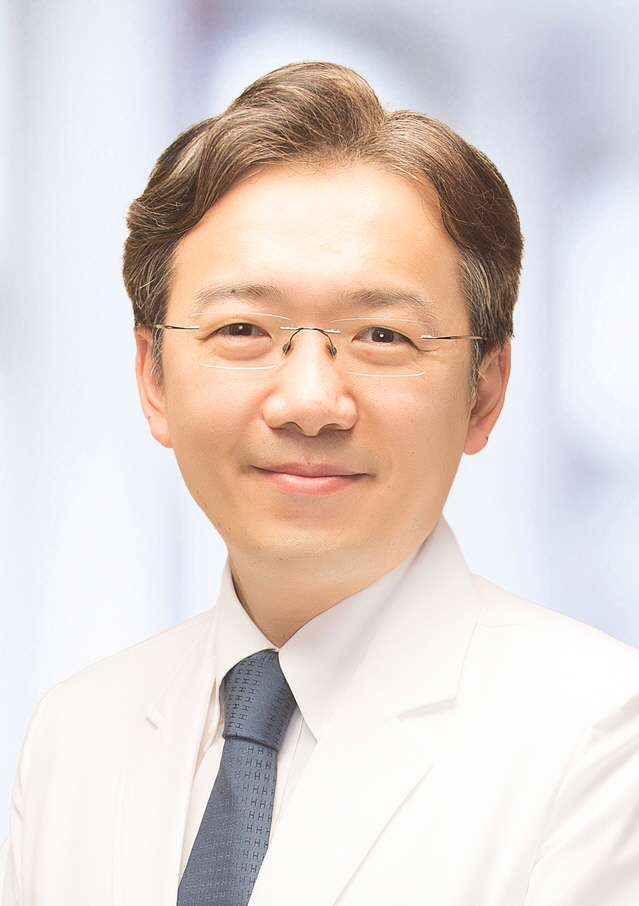Hello, I am Dong Hun Lee, the 3rd Director of the institute of Human and Environmental Interface Biology at Seoul National University.
Our institute began as the institute of Dermatological Sciences in 2004 and was expanded and reorganized under its current name in 2012. For the past 20 years, we have been researching various biological phenomena occurring at the interface between the human body and the environment. In particular, we focus on understanding and elucidating the complex biological mechanisms that occur through interface/ boundary tissues such as skin and mucous membranes.
The skin and mucous membranes of our bodies are not simply protective barriers. They constantly interact with the external environment and are key organs that directly affect our health. Recent studies show that skin and mucous membranes are closely linked to overall health, including the immune system, hormone secretion, and neural transmission.
Our institute's greatest strength lies in convergence research. Centered on dermatological science, experts in plastic surgery, physiology, biochemistry, and immunology conduct multifaceted research, and we have recently expanded our research areas to include neuroscience, metabolism, and cell biology. Through this multidisciplinary approach, we are pioneering new research areas such as the skin-brain axis and skin-gut axis.
Our main research areas are as follows.
In the field of skin aging biology, we are conducting innovative research to identify the characteristics of aging cells and develop technologies to control them, while studying changes in the extracellular matrix, including collagen and elastin. In particular, we are identifying epigenetic changes that occur during aging and the key factors that regulate them to develop innovative aging control technologies. We are also researching groundbreaking anti-aging treatment strategies that use cell reprogramming technology to revert aged skin cells to a younger state.
In hair and stem cell research, we are conducting in-depth studies on the regulation of hair follicle stem cell function and regeneration mechanisms. We are elucidating the signaling systems that regulate hair growth and regeneration, and studying the activation and differentiation regulation mechanism of hair follicle stem cells to apply them to the development of hair loss treatments. We are also focusing on developing innovative therapies that can promote skin regeneration and wound healing by studying the charateristics and fate determination mechanism of skin stem cells.
In the fields of immune skin diseases and skin cancer, we are studying the pathogenesis of chronic inflammatory skin diseases such as psoriasis and atopic dermatitis, as well as various skin cancers including malignant melanoma. We focus particularly on characterizing the microenvironment of diseases, discovering new biomarkers, and developing innovative immunomodulatory therapeutics, presenting advanced therapeutic strategies that can effectively control intractable skin diseases.
In environment-skin interaction research, we study skin defense mechanisms and barrier functions against external stimuli. We understand the skin's response mechanisms to various environmental stresses and develop innovative strategies to promote skin health. In particular, through the study of interactions between the skin and the neuroendocrine system, we are elucidating the effects of stress and hormonal changes on the skin, and the effects of various neurotransmitters and hormones secreted by the skin on overall health.
In the medical device field, we study the mechanisms of various energy-based therapeutic devices, such as lasers and radio frequency, at the molecular biological level to develop optimal therapeutic strategies for skin diseases and anti-aging treatments.
Going forward, our institute aims to conduct more innovative and integrated research based on our existing achievements. In particular, through organic cooperation between research fields, we aim to develop fundamental treatments for skin diseases and present a new therapeutic paradigm that contributes to overall health promotion.
Our ultimate goal is to contribute to improving human health and quality of life through skin and mucosal research. Our institute will strive to achieve this goal through continuous challenges and innovation. We ask for your continued interest and support.
Thank you.

Jin Ho Chung, MD., Ph.DDirector, Institute of Human-Environment Interface Biology,

